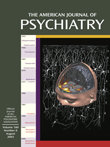This book is brief, clear, and wise. Karasu is a masterful clinician and teacher, and in this era of heavily biological academic psychiatry, to the astonishment of many admiring colleagues, he has for many years been chairman of a fine department of psychiatry, where he is a deeply thoughtful champion of whole human beings and of dynamic psychotherapy.
In Wisdom in the Practice of Psychotherapy, Karasu distills decades of clinical experience and subtle and educated thinking, giving us stimulating maxims and providing both clear generalizations and clear clinical examples, often accompanied by interlinear notes of an excellent dynamic psychotherapist’s concurrent thinking, feeling, understanding, and choosing. His psychotherapeutic roots and styles, though varied, are firmly grounded in major 20th-century psychoanalytic theory, including much of Freud, drive theory, ego psychology, object relations theory, and self psychology. He builds on some major psychoanalytic and psychotherapeutic integrators and synthesizers such as Jerome Frank, Judd Marmor, Ralph Greenson, Erik Erikson, Elvin Semrad, Carl Rogers, Abraham Maslow, James Masterson, Heinz Kohut, Otto Kernberg, Leston Havens, Robert Michels, and Glen Gabbard.
Most of us who have been doing, studying, and teaching psychotherapy for several decades will find many of Karasu’s chapter-heading maxims a pleasure. They are concise, strong, deep-enough, well-chosen summaries that organize (and add to) some of our own and others’ best thinking about simple and complex clinical and theoretical tasks, challenges, and habits of understanding patients and ourselves.
Luckily, though psychoanalytically well informed, Karasu’s book is far more accessible to analysts and nonanalysts than is much analytic writing. Psychotherapy is not just psychoanalysis, as Karasu points out, but good psychotherapy often involves good psychoanalytic understanding. This book, with its bold maxims, should interest, intrigue, and help most psychiatrists; most psychoanalysts; experienced psychotherapists; less experienced psychotherapists; less talented, educated, or disciplined psychotherapists; biological and even behaviorist psychiatrists; all psychiatric training directors; all psychiatric residents and fellows; early career psychiatrists; most clinical psychologists and clinical social workers; and many others.
“Wisdom” and “psychotherapy” may strike some readers of this journal as soft words, not usually evidence-based or quantifiably testable. Certainly both words have often been denigrated in the past decade or two relative to the crisper aspects of physiological psychiatry. But psychiatry is not either/or, not black and white, not psychosis versus neurosis, not biological versus psychosocial, not research versus clinical. Some levels of reality, of understanding, of describing, and of helping or changing human beings and psychiatric disorders legitimately and inevitably coexist. Some softness lasts longer and more solidly than some hardness, and good psychiatry must be able to integrate biopsychosocial complexity—including psychotherapeutic complexity. As to “wisdom,” Karasu defines it as a combination of knowledge, insight, and judgment. As to wisdom’s use in the title of this book, Karasu displays some self-observation and some self-deprecating humor right from the start, quoting Samuel Johnson:
I am accused of being a wise man. All I can tell you is that I have good judgment. How does one have good judgment? By having lots of experience. And how does one have lots of experience? By having bad judgment.
Among the 48 chapter-heading maxims, each elaborated, often with clinical examples, within its chapter, here are a few that seem to me typical and useful:
Theories of psychotherapy should anchor, not drown, the therapist.
The therapist establishes the optimum therapeutic environment through a balance of neutrality and empathy.
The therapist who “completely understands” the patient has stopped listening.
Therapists tend to underestimate the power of listening and overestimate the power of speaking.
Silence is not always golden.
The careful interpretation meets four criteria: optimum timing, minimum dosage, concrete detail, and individual focus.
Every interpretation is incorrect on some level.
Only when the patient becomes more vulnerable within treatment will he or she become less vulnerable outside treatment.
Every therapist must be prepared for the element of surprise.
Can one quarrel with some of Karasu’s maxims? Certainly, and usefully. Does Karasu leave important things out? Certainly, and often usefully. I particularly missed some reference to the fact that, as usual in books and articles on psychiatry and psychotherapy, children and adolescents—a rather large part of our world—are left out. Child and adolescent psychotherapy cannot simply be extrapolated from adult psychotherapy, and some of Karasu’s good maxims are not quite right for dealing with children and adolescents. I would also have liked some additional words about integrating psychotherapy with pharmacotherapy, about dealing with money, and about Karasu’s leaning toward the whole patient (with much mid-20th-century psychiatry but against much recent psychiatry) instead of defining one’s work heavily by discrete-looking diagnoses.
These are, however, very small quibbles. On the whole, Karasu’s book is full of wisdom, and tidily expressed. I admire it greatly and look forward to recommending it to colleagues and students for many years to come.

